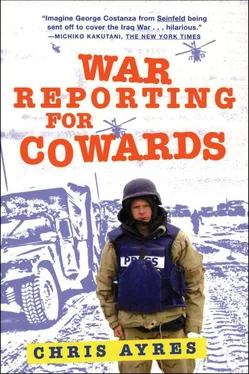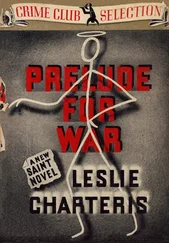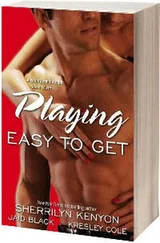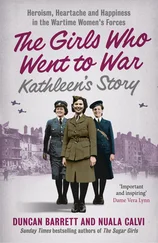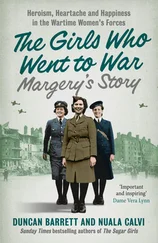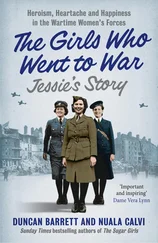Крис Айрс - War Reporting for Cowards
Здесь есть возможность читать онлайн «Крис Айрс - War Reporting for Cowards» весь текст электронной книги совершенно бесплатно (целиком полную версию без сокращений). В некоторых случаях можно слушать аудио, скачать через торрент в формате fb2 и присутствует краткое содержание. Город: New York, Год выпуска: 2005, ISBN: 2005, Издательство: Grove Press, Жанр: Биографии и Мемуары, Юмористические книги, nonf_military, на английском языке. Описание произведения, (предисловие) а так же отзывы посетителей доступны на портале библиотеки ЛибКат.
- Название:War Reporting for Cowards
- Автор:
- Издательство:Grove Press
- Жанр:
- Год:2005
- Город:New York
- ISBN:978-1-5558-4594-0
- Рейтинг книги:5 / 5. Голосов: 1
-
Избранное:Добавить в избранное
- Отзывы:
-
Ваша оценка:
- 100
- 1
- 2
- 3
- 4
- 5
War Reporting for Cowards: краткое содержание, описание и аннотация
Предлагаем к чтению аннотацию, описание, краткое содержание или предисловие (зависит от того, что написал сам автор книги «War Reporting for Cowards»). Если вы не нашли необходимую информацию о книге — напишите в комментариях, мы постараемся отыскать её.
War Reporting for Cowards — читать онлайн бесплатно полную книгу (весь текст) целиком
Ниже представлен текст книги, разбитый по страницам. Система сохранения места последней прочитанной страницы, позволяет с удобством читать онлайн бесплатно книгу «War Reporting for Cowards», без необходимости каждый раз заново искать на чём Вы остановились. Поставьте закладку, и сможете в любой момент перейти на страницу, на которой закончили чтение.
Интервал:
Закладка:
Instinctive fear, however, is not the same as cowardice, and my father is wrong to portray himself as a coward, although he probably sees it as a good-humored way of shrugging off his lack of machismo. Perhaps it’s also an excuse for his own father, a manual laborer for twenty-five years who avoided World War II because of a vague problem with his hands, which meant he couldn’t grip a rifle. It’s odd, however, that Dad doesn’t try to plume his male feathers once in a while. He is, after all, a natural athlete who once boxed and played semiprofessional football. In fact, his first job was as a phys-ed teacher, before he took an open university degree and was promoted to head of a first school in Wooler, a farming village in Northumberland, near the Scottish border. Before he retired in 2005, my dad was the kind of firm-but-fair teacher that everyone liked. He would amuse the children by walking down the hallways on his hands, or by giving them all silly nicknames. But if anyone so much as uttered a swear word, or touched another pupil, he unleashed a wrath so terrifying that the incident was never repeated. Even in the old days, my dad wasn’t much of a fan of “Big Bertha,” the disciplinary slipper he kept in the bottom drawer of his desk. Instead, he used verbal assaults to put the fear of God into wayward pupils. “Son, if you do that again, you’ll be in so much trouble you won’t be able to handle it ,” was his favorite threat. Generally, and in spite of my father’s featherweight build, the pupils believed him.
When it came to physical violence, avoidance was nearly always better than engagement as far as my father was concerned. Once, at the family dinner table, he told me a story of how he was attacked by a gang of older boys when he was growing up in the back streets of Warrington. After the gang circled my dad and his brother, one of the older boys pulled a knife. I asked my dad how he escaped, expecting a heroic tale. “I cried,” he said, without pausing. “The fact that I cried made them realize that I wasn’t worth bothering with, so they left us alone.” The thought of my father crying was enough to silence me for the rest of the meal.
Given that I had no talent for fighting, it was probably wise that I adopted my father’s avoidance strategy. I blamed my lack of school-yard combat technique on the fact that I had an older sister, rather than an older brother, and so didn’t have anyone to practice on. Later, my body awash with the furious chemicals of adolescence, I began to question my dad’s pacifism. My maternal grandmother, a redoubtable woman who admired Margaret Thatcher, had always told me that if Britain hadn’t waged war with Germany, we’d all be living under Hitler’s National Socialist Party and the Jews would be an extinct race. And so, as a teenager, when another boy in my class took a dislike to me, I decided to confront him—physically.
At first, it worked. On the bus ride home from school, I wrestled him to the floor and put him in a headlock until it was time for him to get off. The next morning, however, as I was sitting on the bus reading—feeling both macho and intellectual—the boy appeared out of nowhere and pummeled my nose into a bloody pulp before I had a chance to raise my fists in defense. I could, I suppose, have retaliated a few days later. But the circle of violence had begun, and it seemed pointless to continue it. My father’s strategy, I realized, was not to avoid standing up for yourself, but to fight only when it was worth it. My bloodied nose was the reason why: fighting has consequences. Not for the first time, I realized my father was right.
ISLINGTON, LONDON
1997
3
THE LUNCH TUTORIAL

The lounge of the Red Lion was warm and dank, and the thick, blue-tinted air carried a strong odor of tobacco and salt-and-vinegar chips. It had just gone twelve noon and, as usual, we were drinking heavily. An aging waitress with a poor memory of both the menu and our orders occasionally clonked an unwanted pork pie or cold lasagna between the sodden beer mats. The date was early June 1997—nearly six years before The Times would send me to the Middle East.
“This can’t possibly live up to expectations,” I declared to no one in particular.
“Right,” said Jamie.
“Why not wait and see?” offered Georgina.
Me again: “Where is he anyway?”
There was a contemplative silence. Glasses clinked. Then Chris said: “He’s on deadline, probably. A busy man.”
“He’s more than busy,” snorted Jamie. “He’s a celebrity.”
All of us around the table were enrolled at City University’s postgraduate journalism school, a kind of Fame Academy for aspiring reporters. In fact, City regarded its only serious rival as Columbia in New York. Whether or not this was bullshit was beside the point: City was a brutal place to study, partly because of the matriarch called Linda Christmas who presided over the course (her second name was a gift to young writers with a flair for cruel puns), and partly because of the ferocious rivalry between the students, a fact we tried to hide with forced camaraderie. Between classes we would put on our fake smiles and discuss how much we loved our classmates. The competitiveness was unavoidable: All thirty of us wanted one of the handful of junior positions that came up every year on national newspapers.
The crowd at the Red Lion, the nearest drinking establishment to City’s redbrick entrance on St. John’s Street in North London, also had something else in common: We had all opted to take City’s financial reporting course work, which, in theory, meant we wanted to write about stock prices and corporate takeovers. That, of course, was a joke. No one still in their twenties, and broke, goes into journalism to write about money—a subject in which they have zero practical experience. Journalism students don’t get excited about GDP fluctuations or the price-to-earnings ratios of widget makers. No, they want to bring down the prime minister, meet Robert De Niro, or expose human rights violations in Guantánamo Bay. Under the Christmas regime, however, everyone had to specialize. Which was why we were in the Red Lion, waiting for Robert Cole, our finance tutor.
As far as I was aware, no one, apart from me, had taken financial reporting as a first choice. On the geek-o-meter, it was the equivalent of taking a night class in Klingon. Most of our group had been forced into the financial reporting by early indecisiveness and then a shortage of space in other, cooler courses, such as crime, fashion, or, most glamorous of all, foreign reporting. Unlike the other students, I had no interest in the latter whatsoever. I couldn’t speak a foreign language and I hated any kind of physical discomfort. I had flown only once before, on a high school skiing trip to Switzerland, and wasn’t keen to repeat the experience. The idea of covering a famine in the Sudan or a civil war in a failed Balkan state was enough to bring me into a hot, prickly sweat. I had never even been camping before—unless I counted one trip to a caravan park in France, or a couple of Cub Scout outings to youth hostels. There were many reasons for my lack of adventurousness, most of them physical: I had a sensitive stomach, for a start, and my forehead turned crimson if exposed to sun. It had been hard enough to endure my family’s annual vacation to France.
I was easily the least cool student at City. Part of the reason was my age—at twenty-one, I was one of the youngest—and another part was the fact that I had never lived in London before. I also looked a mess. My ginger hair, long and greasy when I was an undergraduate, had been cut into a failed attempt at a floppy Hugh Grant–style, and I sported a scruffy ginger beard, an incongruous throwback to the days when I wanted to look like Kurt Cobain. My eyesight, meanwhile, had recently deteriorated to the point at which I had to wear my glasses all the time. My specs were a nasty eighties design, with circular gold rims. I couldn’t yet afford to buy a new designer pair or, even better, switch to contact lenses. My clothes, like my haircut and beard, also confirmed that I was lost in a fashion wilderness somewhere between university and adulthood. I wore steel-capped boots with blue Levi’s and a patterned, designer-label work shirt, tucked in instead of out: an aspirational gesture toward grown-up respectability. My unfortunate concession to the dance music–inspired fashion of the time was a purple jacket, made from a rubbery waterproof material. The ensemble looked ridiculous. Needless to say I was single, and doomed to remain so for a long time.
Читать дальшеИнтервал:
Закладка:
Похожие книги на «War Reporting for Cowards»
Представляем Вашему вниманию похожие книги на «War Reporting for Cowards» списком для выбора. Мы отобрали схожую по названию и смыслу литературу в надежде предоставить читателям больше вариантов отыскать новые, интересные, ещё непрочитанные произведения.
Обсуждение, отзывы о книге «War Reporting for Cowards» и просто собственные мнения читателей. Оставьте ваши комментарии, напишите, что Вы думаете о произведении, его смысле или главных героях. Укажите что конкретно понравилось, а что нет, и почему Вы так считаете.
